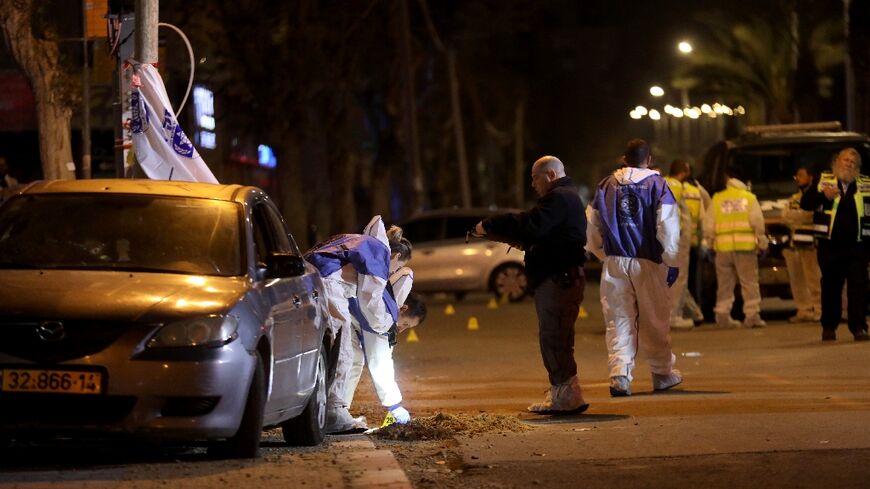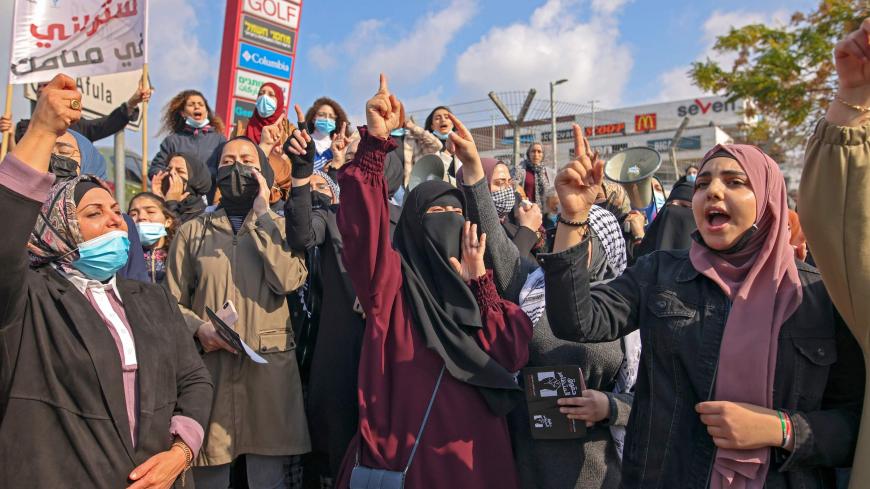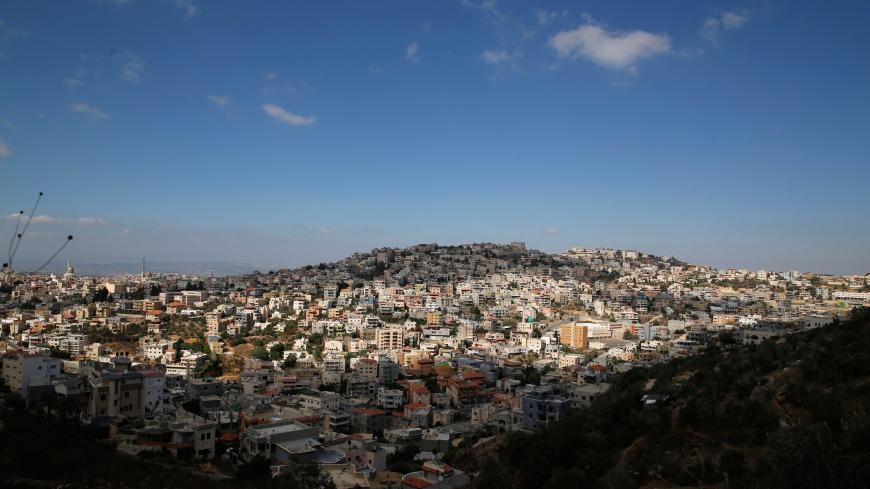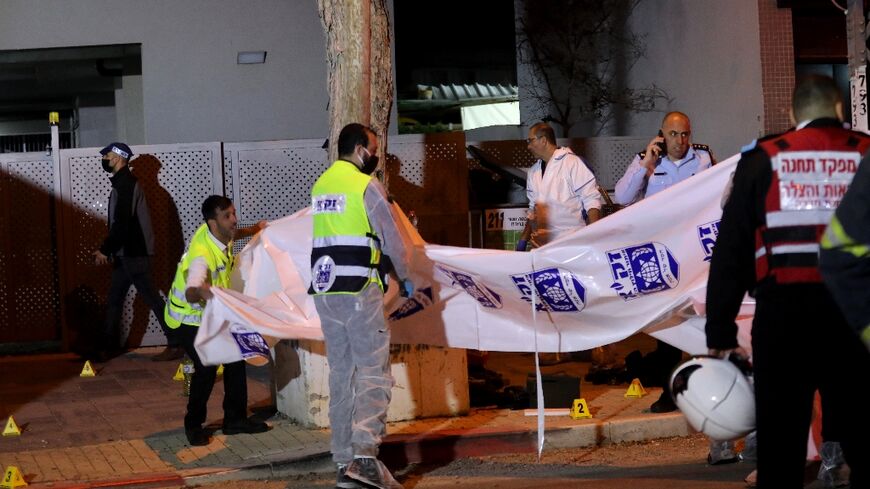Arabs across Israel condemn Islamic State-inspired attacks
Arab Israeli leaders have roundly denounced the terror attack March 27 in Hadera that killed two police officers.
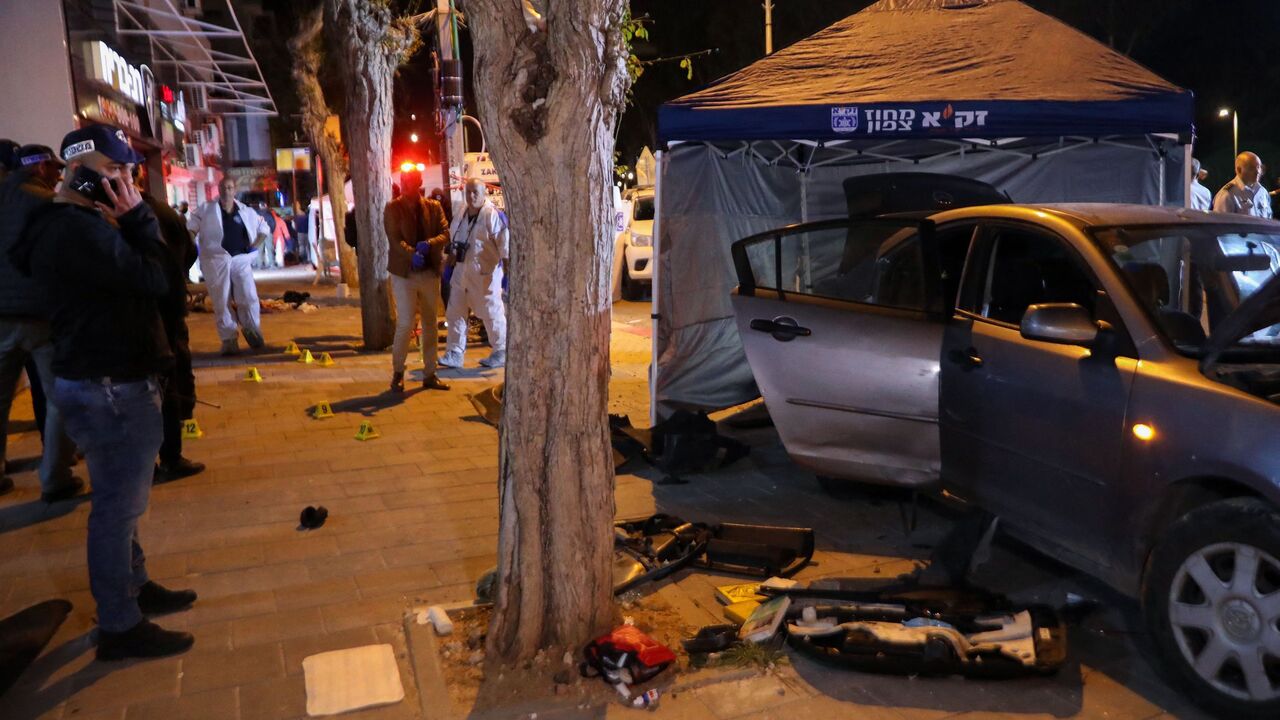
Two of Israel's border police officers, Yazan Falah and Shirel Aboukaret, were killed March 27 in a shooting in downtown Hadera. The incident was Israel's second terrorist attack in a week, after four Israelis were killed March 22 in a combined vehicular and knife attack in the southern city of Beersheba. A third attack took place tonight in the ultra-Orthodox town of Bnei Brak, in the center of Israel. An assailant shot and killed five civilians. Contrary to the March 22 and March 27 incidents, Tuesday's attack was not carried out by an Arab Israeli, but rather a 26-year-old Palestinian from Jenin.
In the two first cases, the Arab Israeli assailants were inspired by the Islamic State. The two shooters in Hadera were residents of the town of Umm al-Fahm. One of them was accused of attempting to join the Islamic State in 2016 and sentenced to 18 months in jail. The assailants made a video of themselves pledging allegiance to the Islamic State that security forces have confirmed is authentic. The attacker in Beersheba is a resident of the Bedouin village of Hura who was sentenced to four years in prison in 2016 for participating in gatherings of Islamic State supporters.



